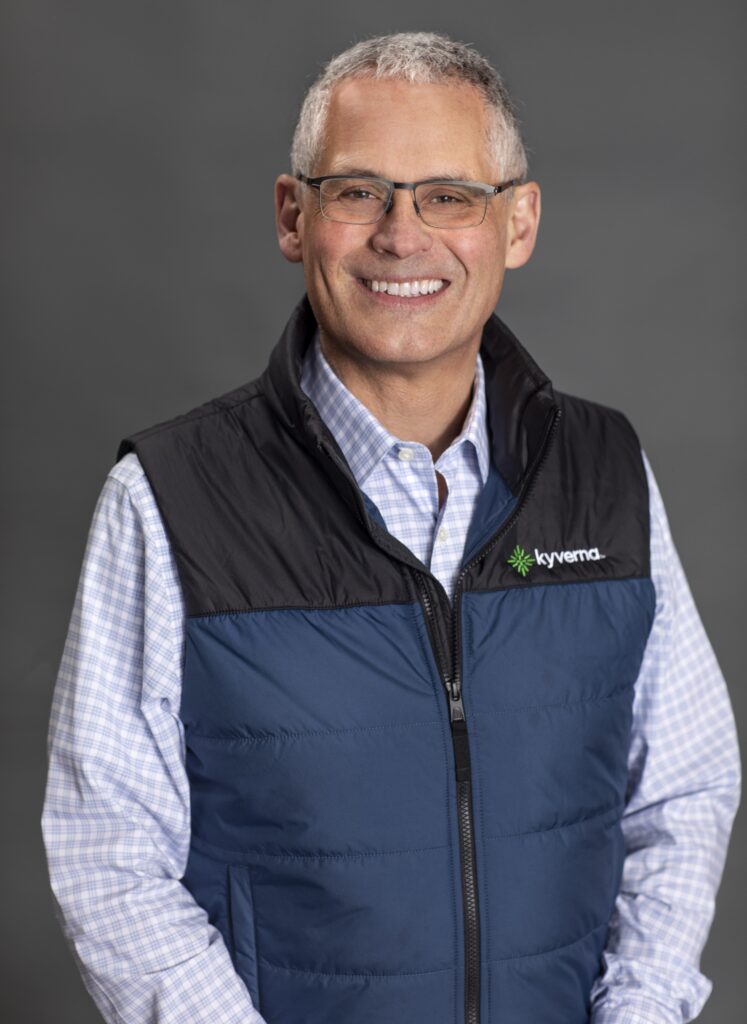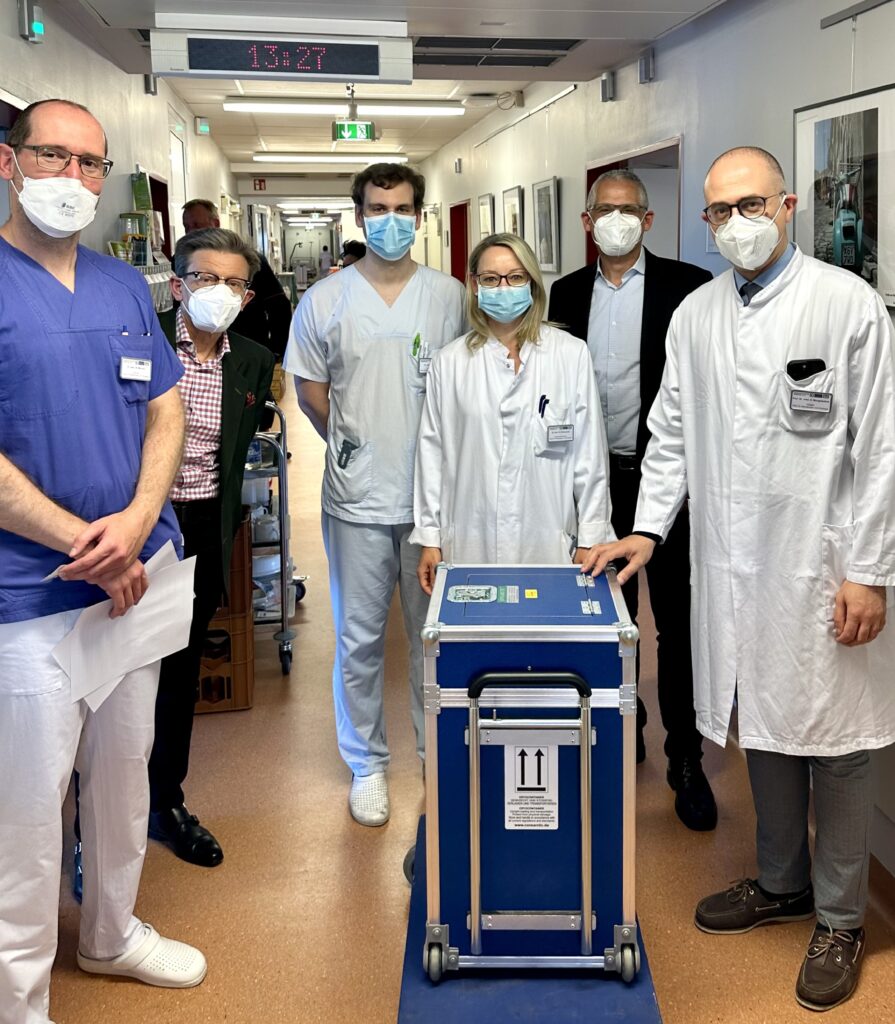Affecting millions of people worldwide, autoimmune diseases present a complex and often debilitating set of challenges for patients. To that end, the quest for innovative treatments has led to the convergence of technology, research and patient-centric care.
Over 80 distinct autoimmune disorders exist, with the most prevalent ones being multiple sclerosis, irritable bowel syndrome (IBS), lupus, type 1 diabetes, psoriasis and rheumatoid arthritis.

CEO of Kyverna Therapeutics
Kyverna Therapeutics is a clinical-stage cell therapy company dedicated to bringing innovative solutions in treating autoimmune diseases.
Leveraging a patient-centric approach, Kyverna is developing cell therapies that aim to reset the immune system and provide new hope to individuals suffering from autoimmune conditions, with a focus on rheumatology and neurology.
Xtalks interviewed Peter Maag, PhD, CEO of Kyverna Therapeutics, who shares insights into Kyverna’s dedication to transforming the treatment landscape for autoimmune conditions through differentiated cell therapies.
Kyverna Therapeutics is at the forefront of cell therapy for autoimmune diseases. What inspired the company to focus specifically on this field, and what do you believe sets Kyverna apart from other companies in the same domain?
Dr. Maag: The life sciences field is witnessing a paradigm shift in cell therapy, moving this tremendously effective approach from cancer into patients with autoimmune disease. At Kyverna, we have early clinical data with our lead cell therapy product KYV-101, an autologous, fully human CD19 CAR T-cell therapy that can deplete B cells causing autoimmune disease, significantly resetting the immune system and potentially changing lives of patients. We believe our differentiated approach that merges immunology and cell engineering will lead to safer and more effective cell therapies.
Given the company’s commitment to cell therapy, can you elaborate on the potential challenges and breakthroughs you anticipate in bringing these treatments to market?
Dr. Maag: The big question is: What indications and what diseases can be treated by CAR T-cell therapy? And right now, we are finding out through our clinical trial program which patients may benefit.
Our starting indication is lupus nephritis, in which 60 percent of patients will fail to see any benefit from the current standard of care or approved therapies. Early results from studies conducted by Kyverna and our collaborators demonstrate that we can actually reset the immune system in these patients and allow them to be free of medications with a single application of our CD19 CAR T-cell therapy. We believe our approach will bring new hope to patients who have no other effective treatment options available to them.
Related: Enhancing Lupus Clinical Trials with Real-World Data Sources
Patient-centric care is becoming increasingly important in the medical world. How does Kyverna ensure that the patient’s needs and well-being remain at the core of its research and development?
Dr. Maag: What’s amazing is that those patients who are chronically ill with autoimmune disease might have a life-changing event by a single cell therapy treatment, resetting their immune system. With a single application, we may change the trajectory of their disease and dramatically improve their outcomes. As we’ve seen with our initial patient results, it’s astonishing to see what we can provide to these patients. Having that patient experience in mind drives us to bring a novel solution to the clinic. We will continue to use these patient experiences to ensure that our R&D efforts align with our vision of putting the needs and safety of the patient first.
How is Kyverna planning to engage with the medical community, patients and other stakeholders to raise awareness and understanding of its therapies?
Dr. Maag: There are three components.
The first one is around clinical evidence and experience. We are doing that through our clinical trial programs. As I’ve mentioned, Kyverna is conducting trials of KYV-101 in patients with lupus nephritis and recently announced our plans for clinical studies in treating myasthenia gravis and multiple sclerosis. We’re looking forward to providing updates on these trials in the near future.
The second one would be educational. With this paradigm-shifting therapy, we need to engage and educate clinicians who are right now finding where this therapeutic could fit into their treatment strategies.
And the third one is the awareness of patients. We rely on patients to engage in our clinical trial programs. Their bravery allows us to learn and see what works and doesn’t work. Having this direct patient interaction allows us to understand what are the real key issues that these patients with these chronic autoimmune diseases are actually facing.
With autoimmune diseases affecting millions in the US, what is Kyverna’s vision for the future of autoimmune treatment, and how does the company plan to make a tangible difference in patients’ lives?
Dr. Maag: Astonishingly, eight to ten percent of people in the US are suffering from autoimmune diseases. A significant number of those patients have no effective treatment options. We aim to change that.
At Kyverna, we believe we have a differentiated approach in treating these debilitating diseases. By resetting the patients’ immune system through cell therapies, we have a chance to ameliorate the underlying biological condition and give the patient new hope for a better life.

in Magdeburg, Germany, at a patient dosing event.
Photo courtesy of Kyverna Therapeutics.
You’ve worked both in Europe and Asia and now at Kyverna in the US. How do these experiences influence Kyverna’s global strategy?
Dr. Maag: Our clinical trial program includes clinical trial centers in the US and in Germany. And we have a great relationship with a cell therapy center in Asia already.
Autoimmune disease is really a global disease, and being a company with broad reach is very important as we bring this monumental treatment to patients around the world.
Kyverna’s philosophy emphasizes a multi-disciplinary approach and the value of diverse thought. How do you foster this environment at the company, and how has it contributed to your successes?
Dr. Maag: At Kyverna, we believe in bringing together talented individuals with diverse talents, traits and experiences.
Being a multi-disciplinary company focused on different indications and problems allows us to be the best we can be, bringing our diversity to play in our approach. By fostering an open culture, we can push the cell therapy field forward with new and impactful insights.
To address patient needs, it takes a village to be successful.
Outside of your professional achievements, are there personal values or experiences that guide your vision for Kyverna and its mission?
Dr. Maag: Looking back on my career, I believe that grit is very important — passion and perseverance in the pursuit of long-term goals. When you care for patients with autoimmune disease, it is absolutely critical to have a long-term view.
We live in an environment used to the extensive life cycles of drug discovery and development. You need to have stamina and perseverance in order to get through regulatory approvals and commercialization to make your solutions available to many patients. In that sense, my beliefs and passion for caring for patients really fit with the focus of the company.
The name “Kyverna” is unique. Is there a story or significance behind the name of the company?
Dr. Maag: Kyverna is derived from the Greek word that means “steer, navigate,” which is why a compass is part of our logo. Through our cell therapy approach, we are navigating the path to finding solutions to autoimmune diseases in the hopes of helping patients steer into a more positive, more productive and successful journey.











Join or login to leave a comment
JOIN LOGIN